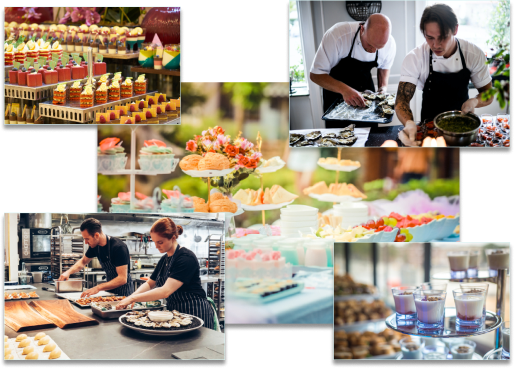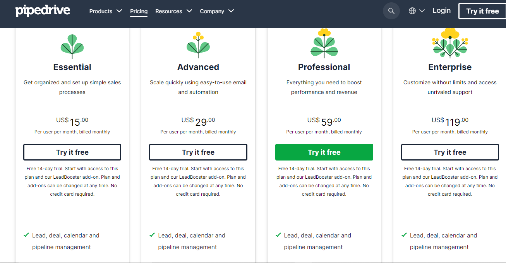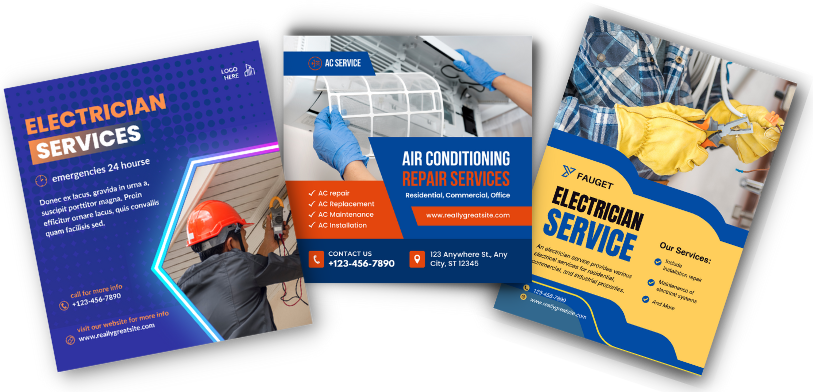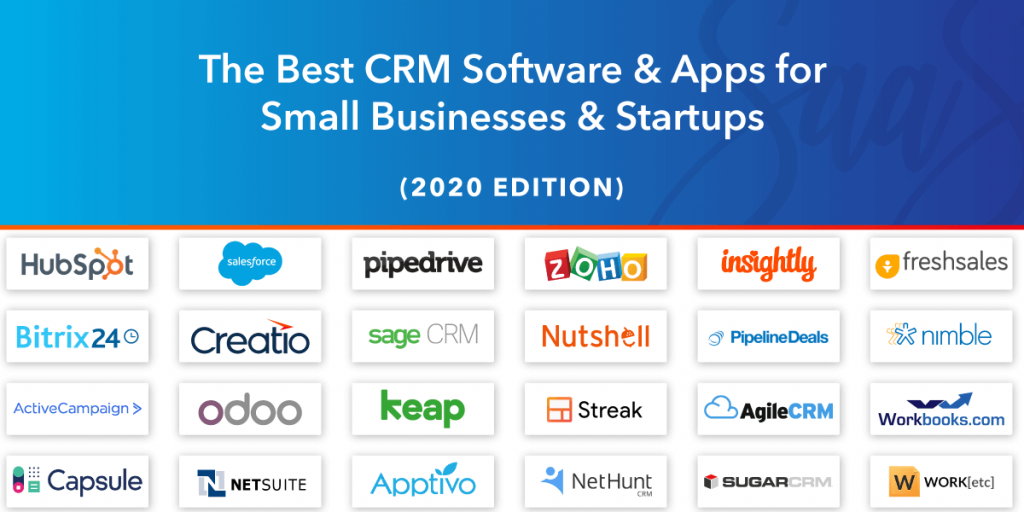
Elevate Your Catering Business: The Ultimate CRM Guide for Small Caterers
Running a catering business, especially a small one, is a whirlwind of activity. You’re juggling client inquiries, menu planning, vendor coordination, event logistics, and, of course, the actual cooking and serving. In the midst of this controlled chaos, it’s easy for important details to slip through the cracks. That’s where a Customer Relationship Management (CRM) system comes in. Think of it as your digital organizational guru, helping you manage every aspect of your client interactions and streamline your operations. But with so many CRM options available, choosing the right one can feel overwhelming. This comprehensive guide is tailored specifically for small caterers, providing you with everything you need to know to select, implement, and leverage a CRM to boost your business.
Why a CRM is Essential for Small Caterers
Before we dive into the specifics, let’s address the fundamental question: Why do you even need a CRM? For small caterers, the benefits are numerous and can significantly impact your bottom line. Here’s a breakdown:
- Centralized Client Information: Forget scattered spreadsheets, sticky notes, and email threads. A CRM consolidates all your client data in one accessible location. This includes contact details, preferences, dietary restrictions, event history, and communication logs. Having everything at your fingertips saves you time and ensures you have the information you need, when you need it.
- Improved Client Communication: A CRM allows you to track all your interactions with clients, ensuring you never miss a follow-up or forget a detail. You can personalize your communication, making clients feel valued and understood. This leads to stronger relationships and increased customer loyalty.
- Streamlined Sales Process: From initial inquiry to final invoice, a CRM can automate many aspects of your sales process. You can track leads, manage quotes, and monitor the progress of each event, ensuring nothing falls through the cracks.
- Enhanced Event Management: CRM systems often integrate with other tools, such as calendar applications and project management software. This allows you to schedule events, track tasks, and coordinate with vendors, all within a single platform.
- Data-Driven Decision Making: A CRM provides valuable insights into your business performance. You can track sales, identify your most profitable clients, and analyze your marketing efforts. This data empowers you to make informed decisions and optimize your strategies.
- Increased Efficiency and Productivity: By automating repetitive tasks and centralizing information, a CRM frees up your time and allows you to focus on what matters most: providing exceptional service and creating delicious food.
Key Features to Look for in a CRM for Caterers
Not all CRM systems are created equal. When choosing a CRM for your catering business, it’s crucial to select one that meets your specific needs. Here are some essential features to consider:
1. Contact Management
This is the core functionality of any CRM. Look for a system that allows you to:
- Store detailed client information, including contact details, addresses, and communication preferences.
- Segment your clients based on various criteria, such as event type, budget, or dietary restrictions.
- Import and export contact data easily.
2. Lead Management
A good CRM should help you manage your leads, from initial inquiry to qualified prospect. Key features include:
- Lead capture forms to collect information from your website or other sources.
- Lead scoring to prioritize your efforts.
- Lead tracking to monitor the progress of each lead through the sales pipeline.
3. Quote and Proposal Management
Creating professional quotes and proposals is crucial for winning business. Look for a CRM that allows you to:
- Create custom quotes and proposals quickly and easily.
- Customize templates to match your branding.
- Track the status of each quote and proposal.
4. Event Planning and Management
This is particularly important for caterers. Look for features such as:
- Calendar integration to schedule events and tasks.
- Task management to assign responsibilities and track progress.
- Vendor management to keep track of your vendors and their services.
- Menu planning tools to create and manage your menus.
5. Communication Tracking
Keep track of all your client interactions, including emails, phone calls, and meetings. Features to look for:
- Email integration to send and receive emails directly from the CRM.
- Call logging to record phone calls and their outcomes.
- Activity tracking to monitor all interactions with a client.
6. Reporting and Analytics
Gain valuable insights into your business performance. Look for features such as:
- Sales reports to track revenue and identify trends.
- Client reports to understand your client base and their preferences.
- Marketing reports to track the effectiveness of your marketing efforts.
7. Integration Capabilities
Consider how well the CRM integrates with other tools you use, such as:
- Accounting software (e.g., QuickBooks, Xero)
- Email marketing platforms (e.g., Mailchimp, Constant Contact)
- Calendar applications (e.g., Google Calendar, Outlook Calendar)
Top CRM Systems for Small Caterers
Now that you know what to look for, let’s explore some of the best CRM systems specifically designed for small caterers. Remember that the “best” CRM is the one that best fits your specific needs and budget. I highly recommend trying out free trials to see which one resonates with you the most.
1. Hubspot CRM
Pros:
- Free to use: Hubspot offers a free version that’s surprisingly robust, making it an excellent starting point for small businesses.
- User-friendly interface: The intuitive design makes it easy to navigate and learn.
- Comprehensive features: Even the free version includes contact management, lead tracking, and basic sales pipeline management.
- Excellent integration: Integrates seamlessly with other Hubspot tools and a wide range of third-party applications.
Cons:
- Limited features in the free version: While the free version is great, advanced features like marketing automation and detailed reporting require paid upgrades.
- Can become expensive: As your business grows and your needs increase, the pricing can become a significant investment.
Why it’s a good fit for caterers: Hubspot’s free CRM is a fantastic option for small caterers who are just starting out. Its ease of use and core features provide a solid foundation for managing client relationships and streamlining sales. The paid versions offer more advanced features that can scale with your business.
2. Zoho CRM
Pros:
- Affordable pricing: Zoho offers a range of paid plans that are generally more affordable than competitors.
- Customization options: Highly customizable, allowing you to tailor the system to your specific needs.
- Extensive features: Includes a wide range of features, including contact management, lead management, sales automation, and marketing tools.
- Good for complex workflows: Offers robust automation capabilities to streamline your processes.
Cons:
- Steeper learning curve: The extensive features and customization options can make the system more complex to learn and set up.
- Interface can feel cluttered: The user interface can sometimes feel overwhelming due to the sheer number of features.
Why it’s a good fit for caterers: Zoho CRM is a great choice for caterers who need a powerful and customizable CRM at an affordable price. Its robust features and automation capabilities can help you streamline your sales process, manage events, and improve client communication. It’s particularly well-suited for caterers who have more complex workflows or are looking to scale their business.
3. Monday.com
Pros:
- Visually appealing interface: The colorful and intuitive interface makes it easy to track projects and manage your workload.
- Highly flexible: Can be used for a variety of purposes, including CRM, project management, and task management.
- Excellent collaboration features: Facilitates teamwork and communication.
- Good for visual learners: The board-based interface is well-suited for those who prefer a visual approach.
Cons:
- Can be expensive: Pricing is based on the number of users, which can become costly as your team grows.
- Not specifically designed for CRM: While it can be used as a CRM, it may lack some of the specialized features found in dedicated CRM systems.
- Can be overwhelming with too many features: The flexibility can also be a drawback, as you may need to spend time configuring it to your specific needs.
Why it’s a good fit for caterers: Monday.com is a good option for caterers who prioritize visual organization and collaboration. Its flexible platform can be adapted to manage clients, track events, and coordinate tasks. It is best for caterers who are already familiar with project management tools and want a visual way to manage their business.
4. Pipedrive
Pros:
- Sales-focused: Designed specifically for sales teams, with a strong emphasis on pipeline management.
- User-friendly interface: The intuitive interface makes it easy to track leads and manage the sales process.
- Customizable sales pipelines: Allows you to create and customize pipelines to match your unique sales process.
- Good for small sales teams: Well-suited for small teams who need a straightforward and effective sales CRM.
Cons:
- Limited features for marketing and customer service: May not be the best choice if you need robust marketing or customer service capabilities.
- Can be limiting for complex businesses: The focus on sales may not be ideal for caterers with more complex needs.
Why it’s a good fit for caterers: Pipedrive is an excellent choice for caterers who want a simple and effective CRM to manage their sales pipeline. Its intuitive interface and focus on sales make it easy to track leads, manage quotes, and close deals. If your primary focus is on sales and lead generation, Pipedrive is a great fit.
5. HoneyBook
Pros:
- All-in-one platform: Combines CRM, invoicing, contracts, and project management in a single platform.
- Specifically designed for creative businesses: The platform is tailored to the needs of event planners, photographers, and other creative professionals.
- Streamlined workflows: Automates many aspects of your client management process.
- Professional templates: Offers a library of templates for proposals, contracts, and invoices.
Cons:
- Can be expensive: Pricing is higher than some other CRM options.
- Limited customization: May not be as customizable as some other CRM systems.
- Focus on creative businesses: While great for creative businesses, it might not be the best fit if you have highly specific needs that fall outside of its core functionality.
Why it’s a good fit for caterers: HoneyBook is a strong contender for caterers who want an all-in-one platform to manage their entire client lifecycle. Its streamlined workflows, professional templates, and focus on creative businesses make it a great fit for those looking to simplify their operations and present a polished image to their clients.
Implementing Your CRM: A Step-by-Step Guide
Choosing the right CRM is only the first step. Successful implementation is crucial to realizing the benefits. Here’s a step-by-step guide to help you get started:
1. Define Your Goals and Requirements
Before you start setting up your CRM, take some time to define your goals. What do you hope to achieve with a CRM? Are you looking to improve client communication, streamline your sales process, or gain better insights into your business performance? Knowing your goals will help you configure the CRM to meet your specific needs. Also, consider all the features mentioned above and which are most relevant to your business.
2. Choose Your CRM and Subscribe
After evaluating the options, select the CRM that best fits your needs and budget. Sign up for a free trial or subscription.
3. Import Your Data
Gather all your client data from your existing spreadsheets, email contacts, and other sources. Most CRM systems allow you to import data in a CSV or Excel format. Follow the CRM’s instructions for importing your data correctly.
4. Customize the System
Configure the CRM to match your specific business processes. This may involve:
- Creating custom fields to store specific information about your clients and events.
- Setting up your sales pipeline to reflect your sales stages.
- Creating email templates and automated workflows.
- Integrating with other tools you use, such as your calendar and accounting software.
5. Train Your Team
Ensure that your team understands how to use the CRM. Provide training on the key features and functionalities. Encourage them to use the system consistently and to enter data accurately. This is crucial to ensure the data is accurate and reliable. Consider creating a training manual or video tutorials.
6. Start Using the CRM
Once the system is set up and your team is trained, start using the CRM daily. Make it a habit to enter all client information, track all interactions, and manage your sales pipeline within the CRM. The more you use the CRM, the more benefits you’ll see.
7. Monitor and Refine
Regularly review how you’re using the CRM and identify any areas for improvement. Are there any features you’re not using? Are there any processes that could be automated? Continuously refine your CRM setup to optimize its effectiveness.
Tips for CRM Success for Caterers
Implementing a CRM is a journey, not a destination. Here are some tips to maximize your chances of success:
- Get buy-in from your team: Make sure your team understands the benefits of the CRM and is committed to using it.
- Start small: Don’t try to implement everything at once. Start with the core features and gradually add more functionalities.
- Keep your data clean: Regularly review and update your client data to ensure its accuracy.
- Automate where possible: Use automation features to streamline your processes and save time.
- Track your results: Monitor your sales, client satisfaction, and other key metrics to measure the impact of your CRM.
- Don’t be afraid to ask for help: If you get stuck, don’t hesitate to contact the CRM provider’s support team or consult with a CRM expert.
- Regularly review and update your processes: Catering is dynamic, so review your CRM and its processes frequently to ensure it still meets your needs.
The Future of CRM for Caterers
The world of CRM is constantly evolving, with new features and innovations emerging all the time. Here are some trends to watch out for:
- Artificial Intelligence (AI): AI-powered features, such as automated lead scoring and predictive analytics, are becoming more common.
- Mobile CRM: Mobile apps allow you to access your CRM data and manage your business on the go.
- Integration with social media: CRM systems are increasingly integrating with social media platforms to help you manage your social media presence and engage with your clients.
- Focus on personalization: CRM systems are becoming more sophisticated in their ability to personalize client interactions.
By staying informed about these trends, you can ensure that your CRM system remains relevant and effective.
Conclusion
In today’s competitive catering landscape, a CRM is no longer a luxury—it’s a necessity. By choosing the right CRM and implementing it effectively, you can streamline your operations, improve client relationships, and drive business growth. Take the time to research your options, define your needs, and choose a system that will help you take your catering business to the next level. Embrace the power of a well-implemented CRM, and watch your business flourish!
With the right tools and strategies, you can transform your catering business into a well-oiled machine. A CRM system is a crucial ingredient in this recipe for success. From managing client inquiries to coordinating event logistics, a CRM can handle the intricate details, leaving you free to focus on what you do best: creating memorable culinary experiences. So, take the plunge, explore the options, and invest in a CRM that will empower you to achieve your business goals and elevate your catering business to new heights.


